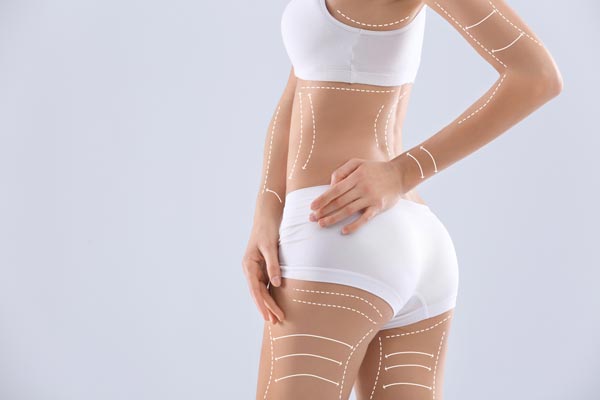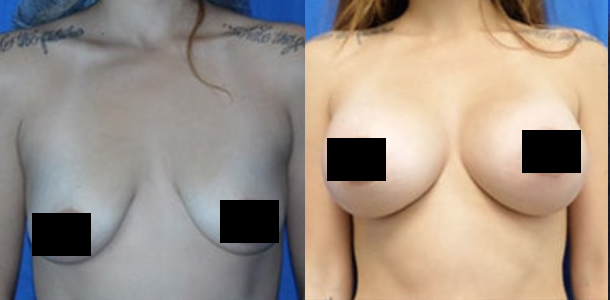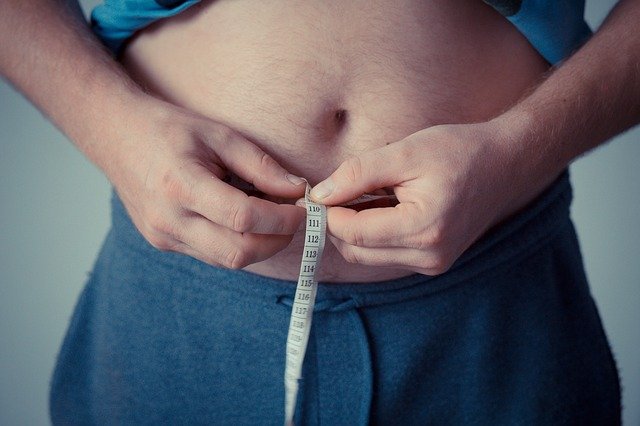Bariatric procedures are surgeries that help patients regulate their food intake. When patients have better control over their serving sizes, they often see dramatic weight loss. For decades, bariatric surgery has been the gold standard for long-lasting, effective results. In recent years, newer procedures are being performed that give patients a choice when considering bariatric surgery. Some procedures use removable devices that curb hunger while other procedures make permanent changes to the stomach’s anatomy. Deciding which one is best for you can be a difficult endeavor. But you are not alone in this. Dr. Lee Au is a highly experienced, board-certified bariatric surgeon who has helped hundreds of patients lose weight and keep it off.
At the beginning of this journey, he helps patients choose which procedure is right for them and their wellness goals. If you would like to begin this process, please schedule a consultation at our Apple Valley, or Pomona offices. To reach our front desk, please call (800) 555-5551.
Contents
- 1 About Bariatric Surgeries
- 2 Is Bariatric Surgery Right For Me?
- 3 Non-Permanent Bariatric Surgery
- 4 Gastric Sleeve
- 5 Your Meeting With Dr. Au
- 6 Before Your Bariatric Surgery
- 7 Recovery From Gastric Balloon & Lap-Band
- 8 Recovery From Gastric Sleeve
- 9 Which One Is Right For Me?
- 10 How Much Do Bariatric Surgeries Cost in Southern California?
- 11 References
About Bariatric Surgeries

Over the past decades, obesity has increasingly put more and more of a strain on our population. Today, more than one-third of adults and one-fifth of adolescents are clinically obese.[1] To lose weight, trainers and health gurus point to an overly simplified formula: diet + exercise = weight loss. While this approach has helped many people lose weight, keeping the weight off is a different story. With the connection between obesity and life-threatening diseases like type II diabetes and cardiovascular disease being known for almost forty years,[2] doctors and surgeons utilize bariatric surgeries to help patients lose weight for good.
Bariatric surgeries restrict the size of the gastric pouch through various methods,[3] which cap the amount of food the stomach can process at one time. This restriction causes the person to feel fuller faster. Lower caloric intake means that more excess fat is burned to supply energy to the body. These procedures often lead to rapid weight loss that wouldn’t be possible with diet and exercise alone. But, with all the options available, which one is best for you? First, we must see if bariatric surgery is ideal for you and your lifestyle.
Is Bariatric Surgery Right For Me?
Bariatric surgeries are reserved for patients whose body mass index (BMI) score is over 30. If you don’t know your BMI score, don’t worry! We will determine it during your initial consultation. Bariatric surgery is best for patients who have comorbidities associated with obesity. Those include:[1]
- Type II diabetes
- Hypertension
- Sleep apnea
- Asthma
- Sexual dysfunction
- Immobility
- Impaired quality of life
- Depression
- Stress urinary incontinence
Another facet of candidate selection is noting the amount of weight loss attempts you have had in the past. A common denominator between ideal bariatric surgery patients is that they all have tried diet and exercise but have found only limited results. After undergoing bariatric surgery, these same patients have a stronger grasp on weight maintenance. Please don’t hesitate to schedule a personal consultation with Dr. Au to see how bariatric surgery can change your life for the better.
Non-Permanent Bariatric Surgery
Choosing the best bariatric surgery type depends on your surgical preferences and long-term requirements. Some are simple, reversible procedures that allow you to go home that very day while others involve permanent alterations to the body. So, careful consideration is needed before you undergo bariatric surgery.
Gastric Balloon
A gastric balloon is an easy, non-surgical procedure that regulates dietary intake by placing one or two small medical balloons. These are filled with body-safe saline. Dr. Au strategically places these balloons into the stomach and fills them to the appropriate size. Once patients are back to eating solid foods, these balloons cause the patient to get fuller faster, allowing for subsequent weight loss. The beauty of the gastric balloon is that patients can have them taken out at any time. Typically, after gastric balloon placement, patients focus on improving their diet and exercise levels. Once they have healthy habits in place and have reached their desired weight, we remove their gastric balloon. At this point in the process, they have the tools and resources to maintain a healthy weight and lifestyle. Patients choose this approach because the procedure is less involved than other surgeries and no changes are permanent.
Lap-Band
Much like a gastric balloon, a Lap-Band procedure allows patients to see reversible alterations to their stomach while providing genuine results. The device is an adjustable, silicone band that wraps around the top part of the stomach (the fundus) to form a small pouch at the end of the esophagus. When the patient eats, the food collects here and slowly filters into the body of the stomach. The Lap-Band device slows the digestive process and makes the person feel fuller after eating less. The beauty of the Lap-Band is that its tightness can be changed in future procedures to allow for less caloric consumption over time.
Gastric Sleeve
Unlike the two previously mentioned procedures, gastric sleeve surgery results in permanent changes to the structure of the stomach. During a gastric sleeve procedure, Dr. Au removes around 85% of the stomach, leaving behind a small tube that will be the patient’s new stomach. He excises the fundus and most of the body of the stomach. With a smaller stomach, patients eat much less than they would normally. Dr. Au performs this surgery through only a couple of minor incisions in the abdomen, which results in very minimal scarring. Since this procedure is more involved and extensive than the other two, patients are required to stay overnight at the hospital and follow a strict pre-op diet for two weeks before their surgery. This procedure allows for patients to see remarkable weight loss that lasts!
Your Meeting With Dr. Au

If you are interested in meeting with Dr. Au to discuss your weight loss options, please schedule a personal consultation by filling out this convenient online form. At your consultation, we will determine your BMI by checking your height and weight. Next, we will learn about any comorbidities associated with your weight. Dr. Au will walk you through the different bariatric surgeries, outlining the advantages of each. You and Dr. Au will discern which one is best for you, your lifestyle, and your ideal results.
Before Your Bariatric Surgery
Depending on which procedure you undergo, we will give you a list of specific instructions that should be followed before your procedure. These may include a strict diet regimen, the discontinuation of certain medications, and preparing the house for post-op recovery. We ask that you pre-fill all medications beforehand. Also, please avoid nicotine products for a couple of days before your procedure and the entire duration of your recovery. Your unique circumstances may require changes or additional steps to your list of preparatory steps.
Recovery From Gastric Balloon & Lap-Band
After both a gastric balloon and Lap-Band procedure, you are free to go home. Both procedures require sedation, so you will need the rest of the day to focus on your recovery. You may feel nauseous and lightheaded for the next couple of hours. For the first week after Lap-Band, we recommend a liquid diet. As for patients who receive gastric balloons, you are free to resume eating a limited diet. During the next few days, please avoid all strenuous activities like lifting weights. We do recommend that you keep yourself active, however. Walking around every 30 minutes will help assuage any pain or discomfort in the first few days. At your follow-up appointments, we will note where you are in your weight loss journey and determine if any future steps are needed.
Recovery From Gastric Sleeve
Since a gastric sleeve procedure is more invasive, recovery will be more involved. Patients typically have to stay in the hospital for a few days after the surgery and focus on full recovery for the next three weeks. Also, patients need to avoid lifting anything heavy for the next 2 months and follow an easy, diet that is suited to their new stomach. Our team of experts will assist you in the recovery process to set you up for success.
Which One Is Right For Me?
Deciding between the three can be tricky. Many factors need to be considered. From your goals to your lifestyle to your schedule, you will need to weigh the pros and cons of each procedure. But don’t feel like you have to go on this journey alone. Our team of experts will help you through every step of the way. After all, choosing to lose weight now is a decision that will make you happier and healthier in the long run.
How Much Do Bariatric Surgeries Cost in Southern California?
Each bariatric surgery comes with its own price. We will discuss and determine the price of your care during your initial consultation. If you have any questions about pricing or financing options, please call us at (800) 555-5551.
References
- Müller, T.D., Blüher, M., Tschöp, M.H. et al. Anti-obesity drug discovery: advances and challenges. Nat Rev Drug Discov (2021). https://doi.org/10.1038/s41573-021-00337-8
- Ohlson, L. O., Larsson, B., Svärdsudd, K., Welin, L., Eriksson, H., Wilhelmsen, L., Björntorp, P., & Tibblin, G. (1985). The influence of body fat distribution on the incidence of diabetes mellitus. 13.5 years of follow-up of the participants in the study of men born in 1913. Diabetes, 34(10), 1055–1058. https://doi.org/10.2337/diab.34.10.1055
- Wolfe, B. M., Kvach, E., & Eckel, R. H. (2016). Treatment of Obesity: Weight Loss and Bariatric Surgery. Circulation research, 118(11), 1844–1855. https://doi.org/10.1161/CIRCRESAHA.116.307591




